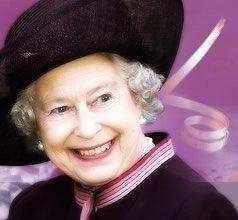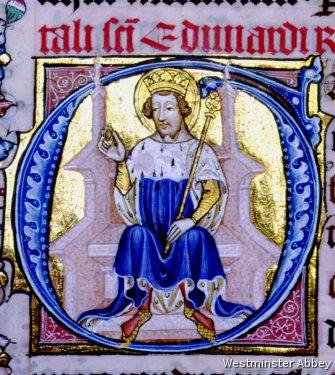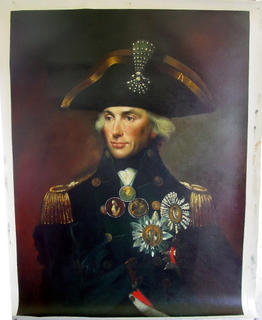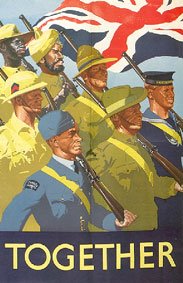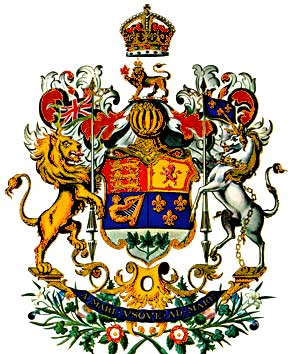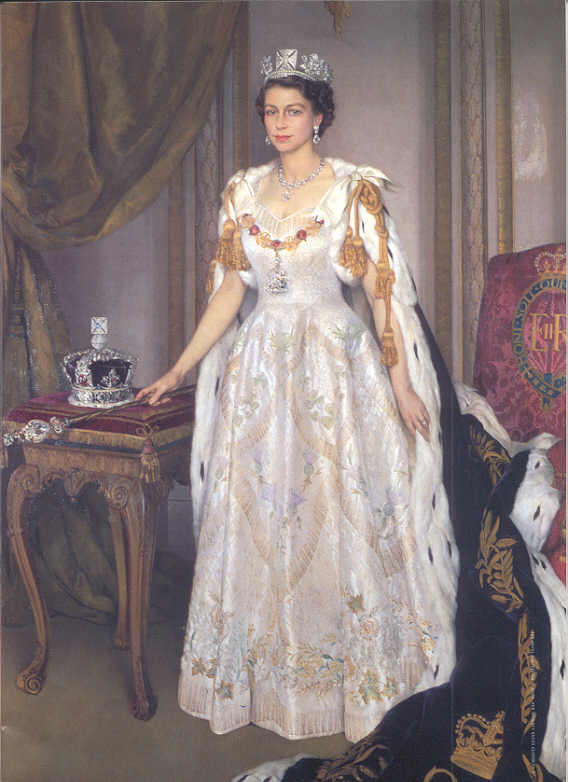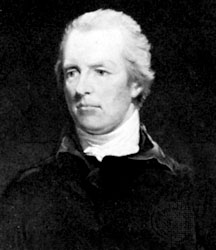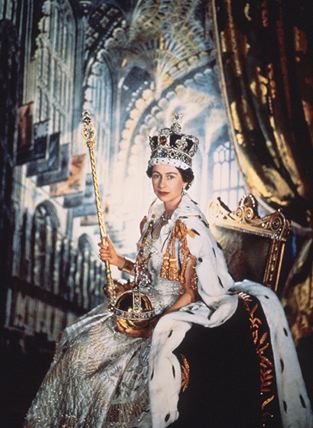[+] HONOURING OUR PATRON, SIR WINSTON CHURCHILL, VICTOR OF THE ENGLISH-SPEAKING PEOPLES
[+] HONOURING OUR QUEEN, ELIZABETH THE SECOND, ON THE 80TH YEAR OF HER BIRTH (1926 - 2006)
[+] HONOURING OUR KING, SAINT EDWARD THE CONFESSOR, ON THE 1000TH YEAR OF HIS BIRTH (1005 - 2005)
[+] HONOURING OUR HERO, LORD NELSON, ON THE BICENTENNIAL OF THE BATTLE OF TRAFALGAR (1805 - 2005)
[+] HONOURING OUR SONS, THE QUEEN'S COMMONWEALTH SOLDIERS KILLED IN THE 'WAR ON TERROR'
[+] HONOURING OUR VETS ON THE 150TH ANNIVERSARY OF THE VICTORIA CROSS (1856 - 2006)
In Canada, the Liberal attack on our defenseless monarchy continues apace.
As reported in the Vancouver Sun and Ottawa Citizen today, Ted McWhinney, a former Liberal Member of Parliament, believes, rather mischieviously, that our Sovereign and constitutional system of government can be rendered obsolete through a deceitful act of Parliamentary omission, by simply not proclaiming the next King to be the rightful Sovereign of Canada:
The following is a reply from the Dominion Chairman of the Monarchist League of Canada, Mr. John Aimers:VANCOUVER - It would be easy for Canada to ditch the royals and become a republic, one of this country's foremost constitutional experts argues in an upcoming book.
The opinion from lawyer and former Liberal MP Edward McWhinney comes a week after Prince Charles, the heir to the throne, proposed to his longtime mistress Camilla Parker Bowles. Ms. Parker Bowles is a controversial figure widely suspected of undermining Charles's marriage to the late Diana. Princess of Wales.
Of course, from a Canadian government perspective, it's hardly relevant to contemplate the couple's personal past. Rather, the key question is -- has this nation matured sufficiently to merit its own head of state rather than a titular one residing on another continent? It's widely believed no government would rock the boat as long as the Queen occupies the throne. But when she abdicates or dies, the matter will doubtless be ripe for debate.
In a book to be titled The Governor General and the Prime Ministers, Mr. McWhinney, a retired political scientist in Vancouver and former president of the prestigious Geneva-based Institute of International Law, lays out the surprisingly simple legal procedure for phasing out the monarchy in Canada. He asserts the Constitution, being a living tree -- as it was recently described by the Supreme Court -- evolves not merely through use of the amending formula.
Those up on matters constitutional will know that amending Canada's Constitution is a virtual impossibility because the Senate, Commons and all provincial and territorial legislatures would have to sing in unison on the topic. That is very unlikely to happen. A more practical and viable strategy, argues Mr. McWhinney, would be for the federal government to act "more subtly and by indirection, through creating new glosses on the Law of the Constitution as written, without formally amending it." That is, a future government of Canada would, after the Queen ends her reign, cut ties with the monarchy "quietly and without fanfare by simply failing legally to proclaim any successor to the Queen in relation to Canada."
At present, the monarch has no duties in Canada beyond the honorific function of approving the choice of governor general every five years. "It would be easy enough to do everything in Canada from now on, and to have the prime minister's choice formally approved by cabinet." For that matter, cabinet could approve the people's choice of head of state, should it be decided the best way to pick that person is by way of a popular vote.
"It is difficult to imagine," writes Mr. McWhinney, "that anyone in Great Britain -- the British government, and certainly the Queen herself -- would be upset by that, so long as it was all done politely and in good will." The "Office of the Queen" would thus remain in the Constitution, but "would remain inactive and, like very many other historically spent sections of the Constitution Act, wither away and lapse by constitutional convention."
Mr. McWhinney says it's unthinkable any Supreme Court "would grant standing to sue and agree to hear any legal objection from anyone in Canada trying to make a constitutional issue out of what would be, in the end, a highly political decision." Membership in the Commonwealth need not be affected.
Mr. McWhinney is keen to have Canadians start discussing whether the monarchy is still relevant here. It's a discussion the Toronto-based Citizens for a Canadian Republic (www.canadian.republic.ca) is certainly anxious to see. The three-year- old group favours an elected Canadian head of state.
On hearing about Charles and Camilla's engagement, the lobby group issued a news release urging citizens to turn their attention to the monarchy issue. It would like to see an all-party parliamentary committee to explore the issue. "Otherwise, Canada could face the very real future possibility of having Charles imposed on Canada as head of state ... before a dialogue is completed on whether this is in Canada's best interests as an independent nation." [Emphasis added]
Professor McWhinney is free to advance the Manley agenda and advocate a Canadian republic, but he is naive and mistaken to imagine this fundamental change to our governance could happen "quietly and without fanfare" by Ottawa's merely refusing to proclaim Charles King at the time of our Queen's death.Indeed. I could not have said it better myself.
What makes McWhinney imagine that the provinces - who derive their powers in Confederation from The Crown, represented by their Lieutenant Governors, would passively accept such an extra-legal power grab by the feds ?
Does he think Canadians are so supine as to allow Ottawa to resort to technical machinations rather than to insist on debating the issue openly and resolving it through the processes entrenched in the Constitution ?
Speaking of The Constitution Act, 1867, Sections 9 and 17 are prescriptive, not permissive. Executive government in Canada is "vested in The Queen"; Parliament consists of "The Queen" and its two chambers.
Academics do a great deal of mischief by suggesting such outlandish theories. Ottawa may continue to misrepresent the Governor General as Head of State, draft legislation to establish a Council of State, remove the Crown as a symbol wherever possible and seek legal by-ways to concentrate all power in the hands of the political elite; but an inquisitive public's respect for the rule of law - and loyalty to the Crown - will not smooth their way down this most dangerous path.


